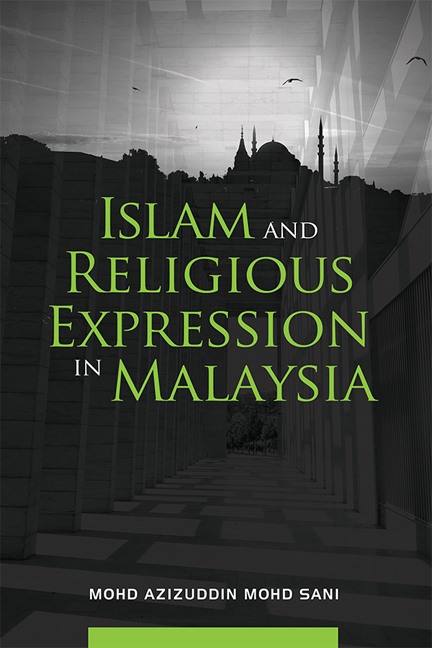Book contents
- Frontmatter
- Cantents
- Foreword
- Preface
- Acknowledgements
- List of Acronyms and Abbreviations
- 1 Freedom of Expression
- 2 Islamization Policy and Islamic Bureaucracy
- 3 Inter-Religious Expression
- 4 Intra-Religious Expression
- 5 Extreme Expression and Radicalization
- 6 New Malaysia under Pakatan Harapan
- 7 Conclusion: Seeking for a Genuine Freedom of Religious Expression
- Bibliography
- Index
- About the Author
4 - Intra-Religious Expression
Published online by Cambridge University Press: 10 November 2020
- Frontmatter
- Cantents
- Foreword
- Preface
- Acknowledgements
- List of Acronyms and Abbreviations
- 1 Freedom of Expression
- 2 Islamization Policy and Islamic Bureaucracy
- 3 Inter-Religious Expression
- 4 Intra-Religious Expression
- 5 Extreme Expression and Radicalization
- 6 New Malaysia under Pakatan Harapan
- 7 Conclusion: Seeking for a Genuine Freedom of Religious Expression
- Bibliography
- Index
- About the Author
Summary
Introduction
Malaysia is a state that embraces communitarianism. Abdullah Ahmad Badawi (2006, p. 47), former prime minister of Malaysia, is critical of the Western values of individualism and once urged the West to learn about the Muslim world because in his view, Muslims see themselves ideally as a collective ummah, notwithstanding the occasional disunity among Muslims countries. Malaysia is also a multireligious society prone to inter-and intra-group conflicts if the relations between and within races are not handled and managed well.
From the debate of religious expression, a communitarian approach to speech regulation where the curtailment of a speech and the consequent loss of autonomy are considered less problematic. In a communitarian society like Malaysia, the state is not neutral between conceptions of the good life, but seeks to promote a substantive version of the “common good” and actively strives to create the public and private virtues needed for society to attain that end (Sandel 1982; Taylor 1985; Walzer 1983). Communitarians perceive individuals as having social characters grounded in the communities in which they live (McIntyre 1981). The good of an individual is not conceivable unless understood within some broader views of the good of the community. For communitarians, rules of civility found in the common law or in statutes regulating public morals, express dominant community norms and thus identity. Restraints on offensive and racist expressions can thus be cast and defended as the product of majoritarian rule-making that reflects prevailing norms such as tolerance and the equal worth of individuals and are enforced for the good of the whole community. Here, the protection of religious feeling may be prioritized over the value of democratic legitimacy, or these legitimacy concerns may simply be seen as a non-issue and ignored altogether (Cram 2009, p. 329).
Those who called for treating religion distinctively remind us that in religion, speech plays a unique role by connecting a person to God positively (prayer) or negatively (blasphemy). It is not “just an opinion”. Moreover, religious expression, such as prayer, is often a communal act and thus the community has a direct stake in the content of the speech.
- Type
- Chapter
- Information
- Islam and Religious Expression in Malaysia , pp. 81 - 112Publisher: ISEAS–Yusof Ishak InstitutePrint publication year: 2020

